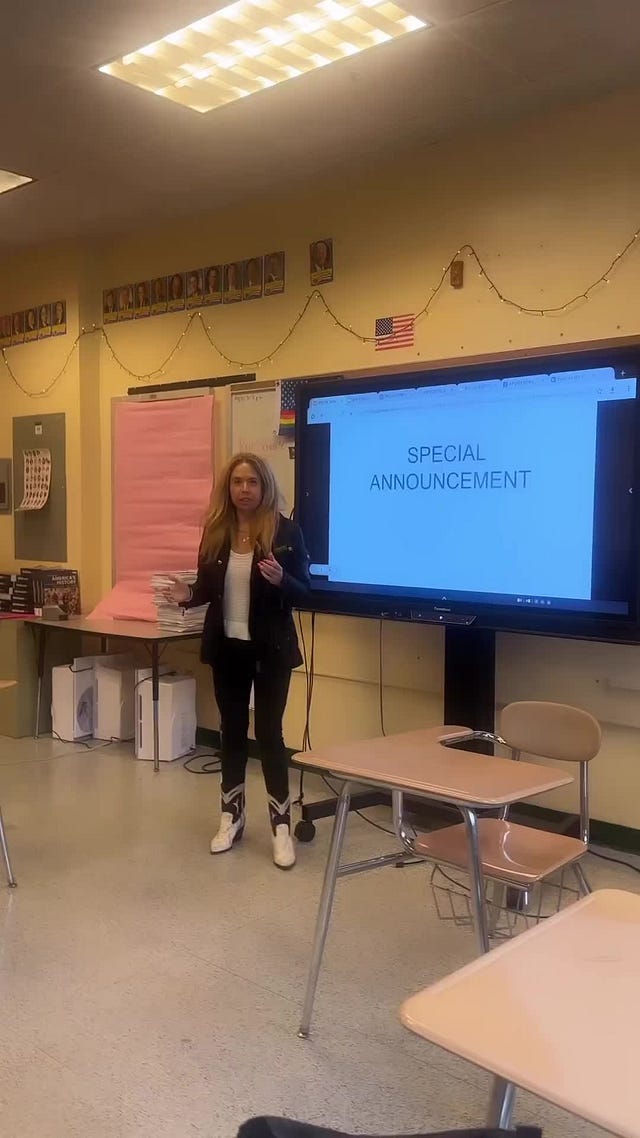As someone who teaches history all day, I am already predisposed to reflecting on the past a lot. I also find myself getting weighed down by nostalgia in my own personal life. I wonder if all history teachers and historians are the same way? Did we choose this profession because we are naturally inclined to reflect on days gone by?
So, as we have recently hit the three-year mark since the beginning of the Covid-19 pandemic, I have been thinking a lot lately about that recent history.
I read this New York Times essay about the pandemic, “What Happened To Us” by Jon Mooallem and he writes:
The only way to understand what happened, and what’s still happening, is to acknowledge that it depends on whom you ask. People’s experiences were affected by their race, ethnicity, wealth, occupations, whether they had children at home. But they also turned on more arbitrary factors, or even dumb luck, like if someone happened to be living with a sort-of-annoying roommate in March 2020. One woman suggested lockdown would have been so much more tolerable if she’d stocked up on those packs of dried mango from Trader Joe’s. A man compared the pandemic to a game of musical chairs: The virus shut off the music; you were stuck where you were stuck.
When the music stopped, I was teaching high school in New York City. We had our last in-person class on Friday, March 13th. Suddenly, I was learning how to use Zoom so I could teach my students remotely from my apartment.
When I first moved into this small space, I figured that it was an ideal set-up because it was a short walking distance to work. At the time, I did not need that much square footage because I was never home anyway.
In the first days of remote school, I will never forget trying to comfort a student whose father was getting hooked up to a ventilator or the nonstop wailing of ambulances past my window as I tried to prepare my students for the AP US History exam. By the way, I still cannot believe that College Board proceeded with standardized tests in the midst of the pandemic. I also remember wondering if this would end in a month or in years or…never.
Since I suddenly had a lot of time on my hands and wanted to document the experience, I started writing a weekly series for PBS NewsHour Classroom called “Teaching in the Age of Coronavirus”. I came up with the title before we all started calling it Covid-19. Thank you to Vic Pasquantonio, the Education Producer at PBS NewsHour Classroom, who was kind enough to edit and post my series.
As I was recently reflecting on that time period three years ago, I started reading through my old posts, including my first one that was published on April 3, 2020. It begins this way:
When I got to my second post from April 10, 2020, “Week 2: Vibe Check,” I was struck by this part:
Then a couple of months into teaching online, educators across the country found ourselves trying to help students process the murder of George Floyd. In my June 10, 2020 “Week 11: No Justice, No Peace” post I wrote
In my final post on June 25, 2020 “Week 13: Keep Moving Forward,” I shared:
As we said our final goodbyes, I watched each student’s avatar disappear from the Google Meet screen. Eventually it was just me, staring at my image on my laptop. It had been over three months since I first greeted my students to our remote learning experience by saying, “Welcome to my classroom, it is also my apartment.”
I was talking to a friend the other day about how it will be so interesting to see how historians write about this time period. We are still living through it, so I won’t dare speculate about exactly how it will be portrayed. However, I do think it is important that we get the narrative correct. For one, so that the same mistakes are not made next time. I mean, hopefully there is not a next time! However, just in case, we need to ensure that future generations who might have to contend with a pandemic will understand that it is so imperative that leaders in charge of public health do not politicize it.
This is one of the many reasons why we need to keep fighting these right-wing attempts to whitewash history at the K-12 level. I have faith in historians to write an honest history of the Covid times. However, I am concerned about how it will get filtered down into textbooks and state curricula.
And, speaking of memories, here is the playlist I made when I first heard about the Covid-19 pandemic in the beginning of March 2020. I had no idea what was about to happen when I compiled this playlist. Many of the songs in this playlist were sadly and eerily prophetic.
Also, it is a yearly tradition for me to do this to my students right before it is May 1st, so I will subject you to it as well:
 Tiktok failed to load.
Tiktok failed to load.Enable 3rd party cookies or use another browser
Thanks for reading. I don’t charge for my content, but if you ever want to support me, this is my LinkTree. I will be back later this week with another “Yo, Miss!” installment.
Until then, have a great week.









